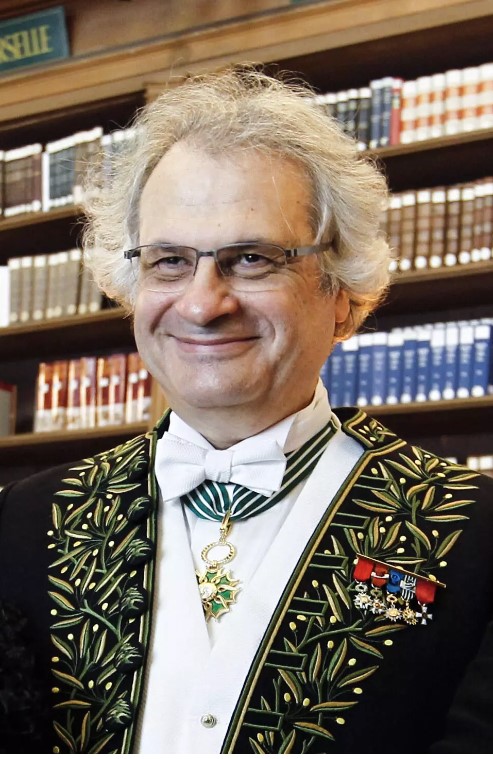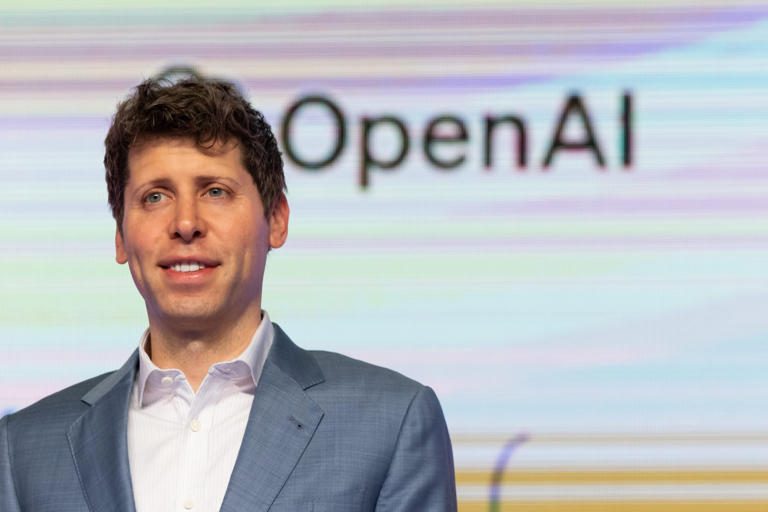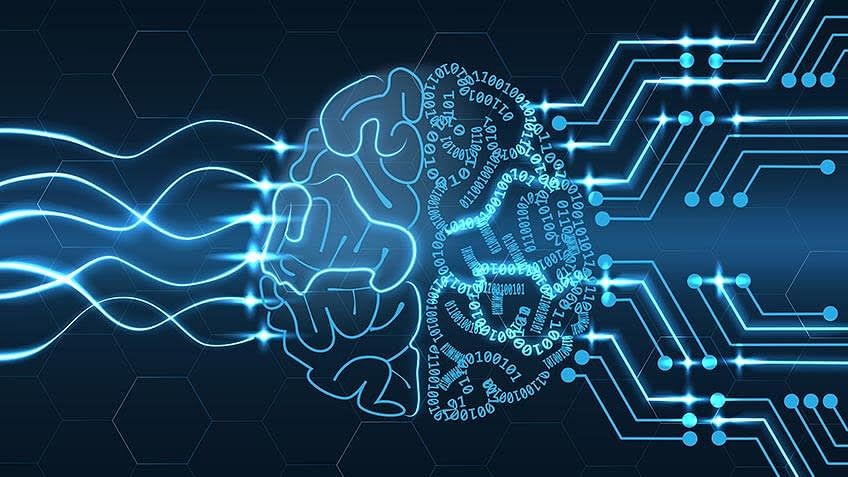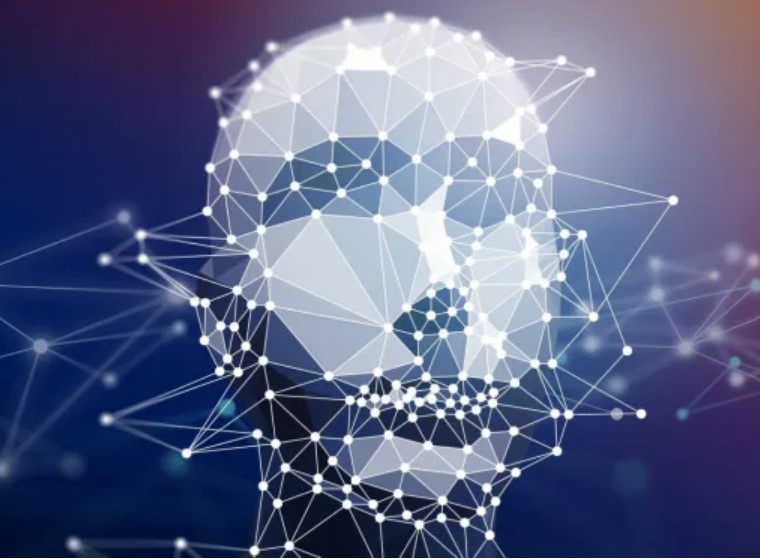By Cate Chapman, Editor at LinkedIn News — The income of Americans with advanced degrees hasn’t kept pace with the price of obtaining the credentials. The difference between starting salaries for those with undergraduate and graduate degrees shrank to 22.5% in 2021 from 31.8% in 2017, according to the National Association of Colleges and Employers. […]

By AFP — The French-Lebanese writer, 74, becomes only the 33rd person to occupy the post of “perpetual secretary” since the body’s founding under King Louis XIII in 1635. He takes over from Helene Carrere d’Encausse, who died last month having held the post since 1999. She did not designate a clear successor but Maalouf, who won France’s most prestigious literary prize, the Prix Goncourt, in 1993 for “The Rock of Tanios”, was considered the obvious choice due to his highly active engagement in the institution since being elected in 2011. There was one other candidate, his close friend Jean-Christophe Rufin, though he only threw his hat in the ring at the last minute, fearing there was not enough of a democratic process, joking to one magazine this weekend that it was “like North Korea”.
The academy is charged with setting the rules of the language to ensure it remains “pure, eloquent and capable of dealing with the arts and sciences”. Lately, it most often gains notice as the bulwark against the entry of English words into French usage. Last year it railed against the common practice of using English-sounding terms in French ads and branding — such as train operator SNCF’s low-cost “Ouigo” (pronounced “we go”) service — or simple imports from English like “big data” and “drive-in”. It became more assertive under Carrere d’Encausse, even threatening legal action against the government for including English translations on national identity cards. There are currently 35 members of the Academy — known as “Immortals” in reference to their motto “A l’immortalite” (“To immortality”). Past members include such luminaries as Montesquieu, Voltaire and Victor Hugo.

Fortune.com — OpenAI continues to plan for the AI future it ushered in when it released its wildly popular ChatGPT chatbot last November, according to a blockbuster report in The Information. The company’s founder, emerging AI mogul Sam Altman, met with Jony Ive, the renowned designer of Apple products, to discuss building an AI hardware device, according to two people familiar with the conversations. The implications are massive: A next-generation consumer electronic that would ostensibly integrate AI into daily life? Even talks between the two point to a tech future dominated by artificial intelligence. The new technology has for now mostly been limited to software programs and machine learning algorithms. A successful collaboration, should it come to pass, would be one of the first mass market consumer devices featuring AI. Details on what this product might look like are limited. However, Ive’s presence alone instills confidence. “Jony Ive is one of the genius minds of this generation,” Dan Ives, managing partner of Wedbush Securities, told Fortune.
Ives (no relation to Ive) is an influential voice on Wall Street and has been forecasting a bright future for AI for months. In June, he wrote that the investing climate around AI is akin to a “1995 internet moment,” not, as some skeptics would argue, like 1999 just before the dotcom crash. The second, third, and fourth derivatives of this AI gold rush are just starting to evolve for the tech landscape,” Ives wrote at the time. “As we have covered the tech sector for decades and saw the dotcom bubble and burst firsthand, [we believe] this is the start of a fourth industrial revolution playing out across tech over the coming years that is still being underestimated by the Street in our opinion.”
by Mary Ann Azevedo — techcrunch — OpenAI is in discussions to possibly sell shares in a move that would boost the company’s valuation from $29 billion to somewhere between $80 billion and $90 billion, according to a Wall Street Journal report citing people familiar with the talks. Employees would be allowed to sell their […]
By Fr. Paul Samasumo and Sr. Nina Benedikta Krapić –– Lebanese Bishop Jules Boutros, who took part in the “Mediterranean Meetings 2023” in Marseille, concluded by Pope Francis, spoke to Vatican News on migration in Lebanon. In the interview, the bishop pointed out that Lebanon is a small country of around 4.5 million Lebanese, with […]

By Radwan Radwan — arabnews.com — JEDDAH: In the coming years, artificial intelligence technology is expected to transform economies, business practices and the way people live, work and consume. Conscious of these potentially momentous changes on the horizon, Saudi Arabia is pouring investments into AI research and development. The Kingdom launched its National Strategy for Data and Artificial Intelligence in October 2020 aimed at becoming a global leader in the field, as it seeks to attract $20 billion in foreign and local investments by 2030. Saudi Arabia is also determined to future-proof its workforce, for a start by training and developing a pool of 20,000 AI and data specialists. Riyadh’s adoption of digitalization and emerging technologies is forecast to contribute some 2.4 percent to its gross domestic product by 2030, according to a recent report by global consultancy firm PwC.
In terms of average annual growth in the contribution of AI by region, Saudi Arabia is expected to grab a 31.3 percent share in the technology’s expansion between 2018 and 2030, the PwC report added. “I believe that Saudi Arabia has a huge potential,” Ali Al-Moussa, a Saudi entrepreneur and AI expert, told Arab News. “Being in the field for years now, I saw a lot of smart, talented people who are able to compete with (others around) the globe to create great technologies, not only artificial intelligence, but everything from robotics to blockchain, you name it.” Saudi Arabia’s drive toward new technologies aligns with the objectives of the Vision 2030 social reform and economic diversification agenda, which aims to strengthen the Kingdom’s position as the regional leader in the field.

By Vanessa Boumelhem — catholicweekly.com — While millions of young people gathered around the pope in the streets of Lisbon, Portugal for World Youth Day, a similar gathering took place in the streets of Lebanon, where thousands of Catholic youth unable to be in Portugal came together for their own celebrations. The event was organised by 300 volunteers from all different Catholic rites under the youth committee of the Assembly of Catholic Patriarchs and Bishops of Lebanon. Under the World Youth Day theme, “Mary arose and went with haste,” Lebanese Catholic youth gathered for prayer, Eucharistic Adoration and catechesis, bringing forth a strong message of hope and faith in times of hardship and adversity. Though crisis-stricken and marred by worsening economic conditions, the youth were able to renew their hope and strengthen their faith, sending a message to Lebanese Catholics across the world.
This week, the Australian Maronite Catholic community welcomed our Patriarch, His Beatitude and Eminence, Patriarch Mar Bechara Boutros Cardinal Rai, Patriarch of Antioch and all the East, to Australia primarily to celebrate the Golden Jubilee Mass. He will also preside over the Sixth Congress of Maronite Bishops of Eparchies outside the Patriarchal Territory and General Superiors of Maronite Religious Orders. As the eparchy celebrates its golden jubilee, we recognise that this milestone has come as a result of the unwavering strength of the Lebanese Maronites, who have faced countless challenges in their past. Our eparchy was established after 100 years of Maronite presence in Australia, which grew prominent enough to support the need for Maronite priests and churches.
While the first Maronite Parish in Australia was established in 1897, the eparchy was not officially established until 1973. The Maronite community grew slowly in the early 1900s, but by the mid-1900s, emigration started again and the community began to grow rapidly, organising itself into village and family associations while assimilating into wider society. With this, the need for a life which better preserved and promoted Maronite Values and customs grew, eventually leading to the formation of the strong Maronite community in Australia today.

bt Bryson Masse – venturebeat — AI’s carbon footprint is no open-and-shut case, according to scientists from the University of California-Irvine and MIT, who published a paper earlier this year on the open access site arXiv.org that shakes up energy use assumptions of generative AI models, and which set off a debate among leading AI researchers and experts this past week. The paper found that when producing a page of text, an AI system such as ChatGPT emits 130 to 1500 times fewer carbon dioxide equivalents (CO2e) compared to a human.
The paper concludes that the use of AI has the potential to accomplish several significant activities with significantly lower emissions than humans. However, an ongoing dialogue among AI researchers reacting to the paper this week also highlights how accounting for interactions between climate, society, and technology poses immense challenges warranting continual reexamination. From blockchain to AI models, environmental effects need to be measured In an interview with VentureBeat, the authors of the paper, University of California at Irvine professors Bill Tomlinson and Don Patterson, and MIT Sloan School of Management visiting scientist Andrew Torrance, offered some insight into what they were hoping to measure.
Originally published in March, Tomlinson said that the paper was submitted to the research journal Scientific Reports where it is currently under peer review. The study authors analyzed existing data on the environmental impact of AI systems, human activities, and the production of text and images. This information was collected from studies and databases that study how AI and humans affect the environment. For example, they used an informal, online estimate for ChatGPT based on traffic of 10 million queries generating roughly 3.82 metric tons of CO2e per day while also amortizing the training footprint of 552 metric tons of CO2e. As well, for further comparison, they included data from a low impact LLM called BLOOM. On the human side of things, they used both examples of the annual carbon footprints of average persons from the US (15 metric tons) and India (1.9 metric tons) to compare the different per-capita effects of emissions over an estimated amount of time it would take to write a page of text or create an image.

by Carl Franzen — venturebeat.com — Do you want to put an implant designed by Elon Musk’s company Neuralink — perhaps best known for killing 1,500 test animals — into your brain? Are you at least 22 years old and do you have quadriplegia (loss of function in four limbs) from a spinal cord injury, or amyotrophic lateral sclerosis (ALS)?
Then you may qualify to participate in the first-ever volunteer human trials of Neuralink’s first brain-computer interface, which has begun recruitment for participants, as the company announced on its website today. “The PRIME Study (short for Precise Robotically Implanted Brain-Computer Interface) – a groundbreaking investigational medical device trial for our fully-implantable, wireless brain-computer interface (BCI) – aims to evaluate the safety of our implant (N1) and surgical robot (R1) and assess the initial functionality of our BCI for enabling people with paralysis to control external devices with their thoughts,” explains the blog post. The company has courted controversy for testing its implant on monkeys that allegedly resulted in their death (Musk has posted on his social network X, formerly Twitter, that the monkeys were terminally ill, anyway), but that apparently isn’t stopping it from moving forward to try the tech on humans, next, after receiving an exemption from the U.S. Food and Drug Administration in May.
What’s involved in the Neuralink implant human trials?
ALBAWABA – by Mayar Alkhatieb — According to a study by the University of California and the University of the Republic of Uruguay, regular napping may result in better and greater brain health. The research findings suggest a correlation between napping and larger brains, which has been linked to lower risks of dementia and other […]



